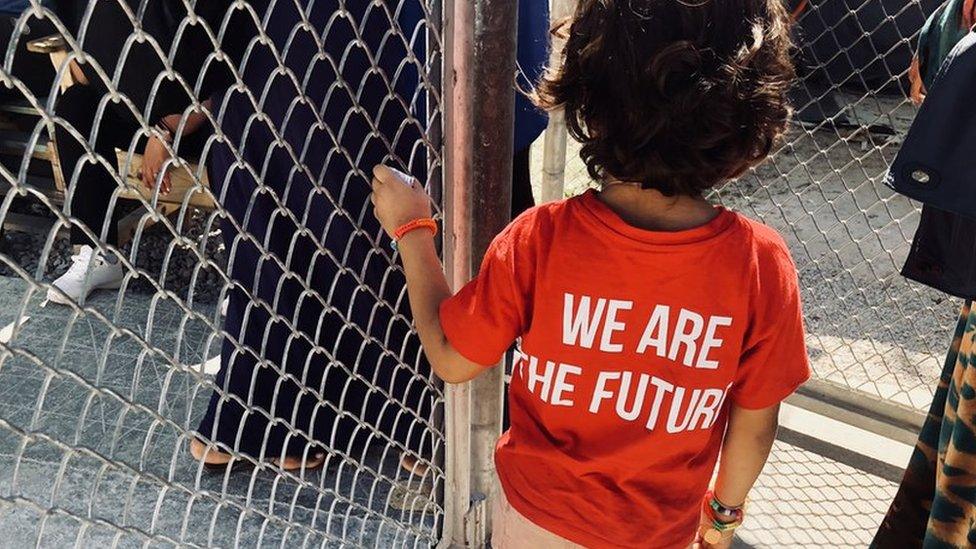Greece: Migrant camps 'on edge of catastrophe', EU watchdog says
- Published
Asylum seekers at Moria camp on Lesbos have complained of deadly violence
Thousands of people living in "abysmal" refugee camps on two Greek islands are "on the edge of catastrophe", Europe's human rights watchdog has said.
Dunja Mijatovic, Council of Europe Commissioner for Human Rights, spoke of an "explosive situation" on the Aegean islands, home to 36,000 asylum seekers.
Hours later, Greece's parliament passed a bill to fast-track deportations.
The prime minister said refugees would be protected but Greece's gates would not be thrown open to everyone.
The left-wing opposition has criticised the law and some humanitarian groups, including United Nations refugee agency UNHCR, have warned it could restrict protection for asylum seekers.
But centre-right Prime Minister Kyriakos Mitsotakis said the move would deter those not entitled to asylum, telling parliament: "Enough is enough."
Why have migrants returned to Greece?
Nearly one million migrants refugees, including many fleeing war in Syria, crossed from Turkey to the Greek islands in 2015. Turkey agreed a financial deal with the EU to curb the influx but is still hosting 3.6 million Syrians.
In recent months the numbers have surged and all the camps on the Greek islands are filled beyond capacity.
Ms Mijatovic visited reception facilities on the islands of Lesbos and Samos. Lesbos has a capacity of 2,840 but is currently housing 16,924 immigrants, many of them in the cramped Moria camp.
What did the commissioner say?
In a scathing assessment, Ms Mijatovic said: , external"The situation of migrants, including asylum seekers, in the Greek Aegean islands has dramatically worsened over the past 12 months. Urgent measures are needed to address the desperate conditions in which thousands of human beings are living."
She described the camps as "vastly overcrowded" places where people "queue for hours to get food and to go to bathrooms, when these are available".
Allow X content?
This article contains content provided by X. We ask for your permission before anything is loaded, as they may be using cookies and other technologies. You may want to read X’s cookie policy, external and privacy policy, external before accepting. To view this content choose ‘accept and continue’.

The camp in Samos was so overcrowded, families were "chipping away at rocks to make some space on steep hillsides".
"This no longer has anything to do with the reception of asylum seekers," Ms Mijatovic said. "This has become a struggle for survival."
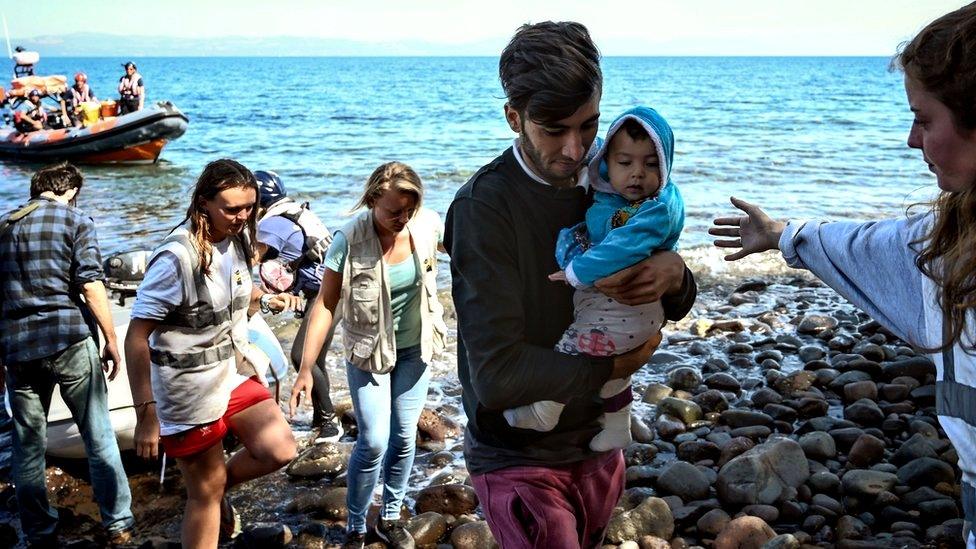
Rescued migrants arrive on the Greek island of Lesbos after setting off by boat from Turkey
Ms Mijatovic said if the "abysmal conditions" were not improved urgently, there was a risk of "further tragic events".
Last month, a woman was killed when a fire broke out in the centre of the Moria reception centre. Seven people died in September when a dinghy carrying migrants capsized between Turkey and the Greek island of Chios.
What's the new asylum legislation?
The controversial asylum law, introduced by Greece's New Democracy government, aims to curb the rising number of migrants arriving on Greece's shores.
The government said the new legislation would speed up and streamline the asylum process and the deportation of illegal migrants.
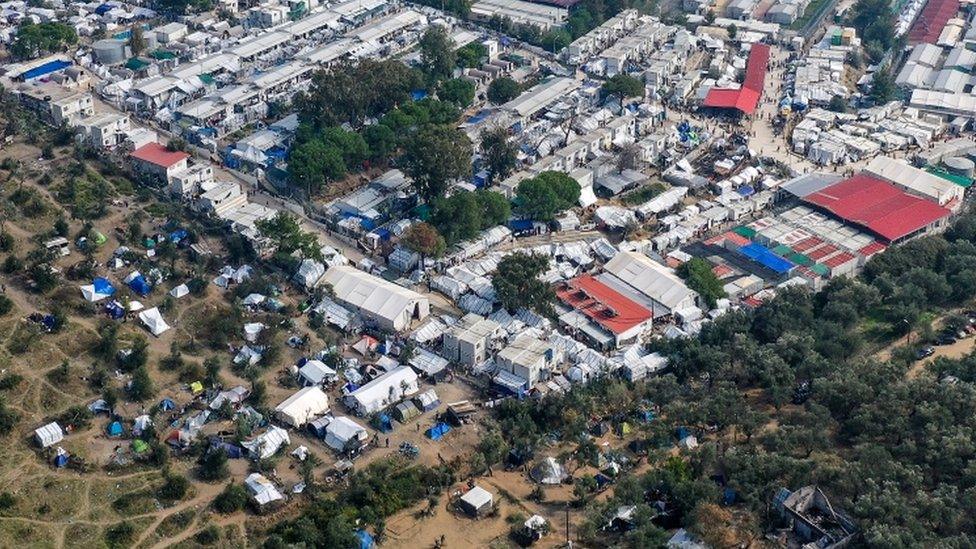
The Moria migrant camp, where thousands of people are living in cramped conditions
Mr Mitsotakis, who took office in July, has taken a much tougher stance against migrants and asylum seekers than his left-wing predecessor, Alexis Tsipras.
While Mr Tsipras condemned the bill, the prime minister told parliament the law sent a clear message that those who were not entitled to asylum would be sent back.
- Published19 September 2019
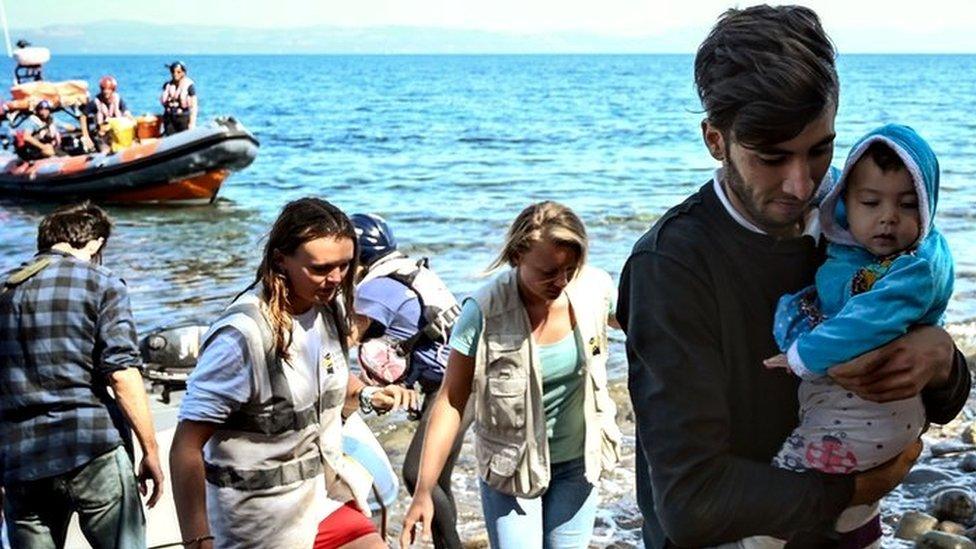
- Published29 September 2019
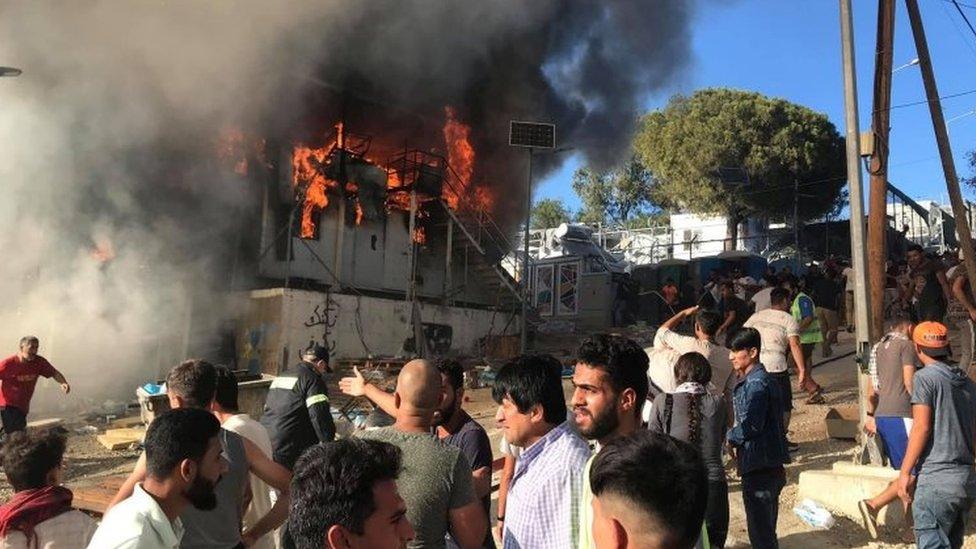
- Published28 August 2018
